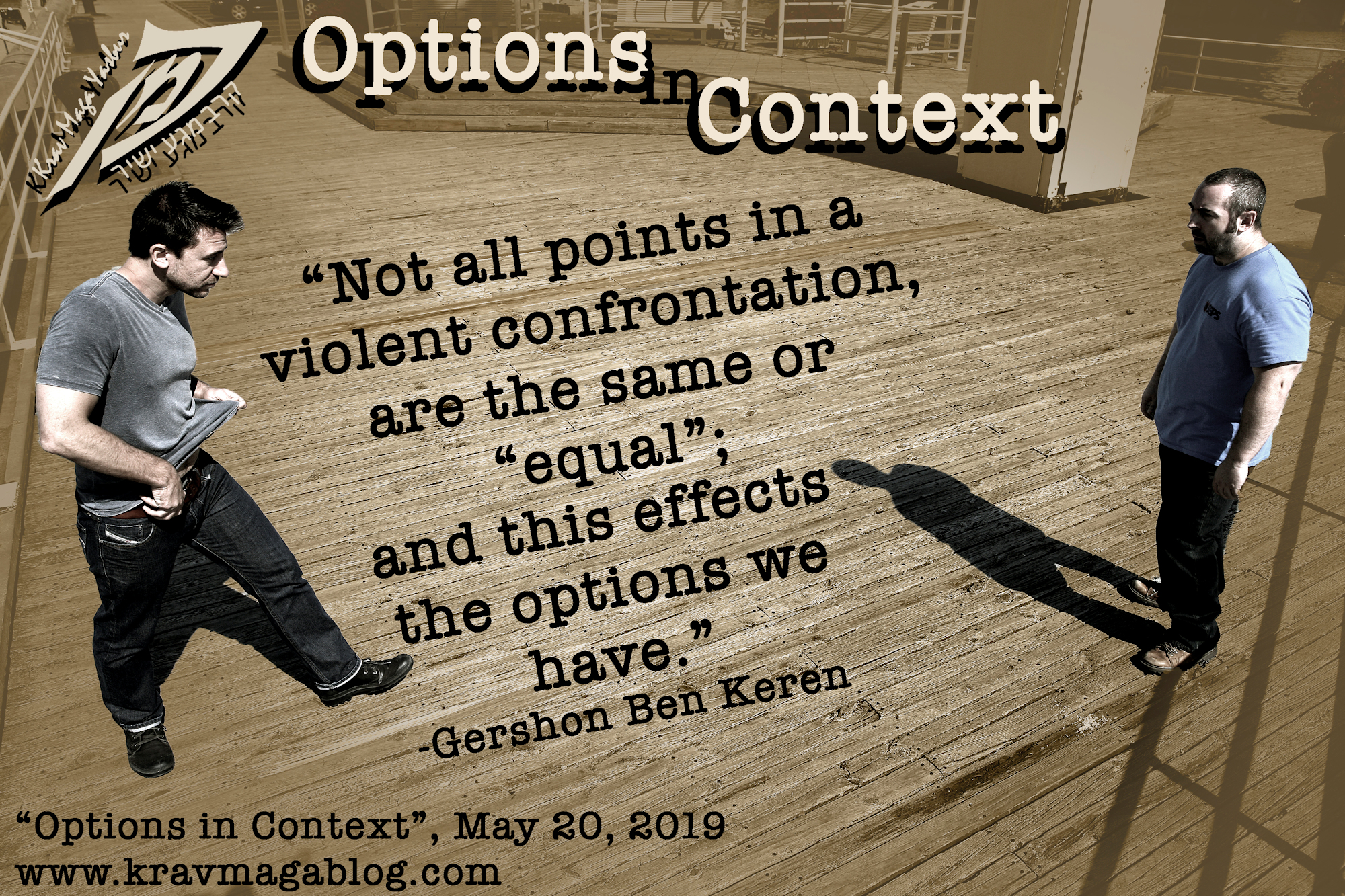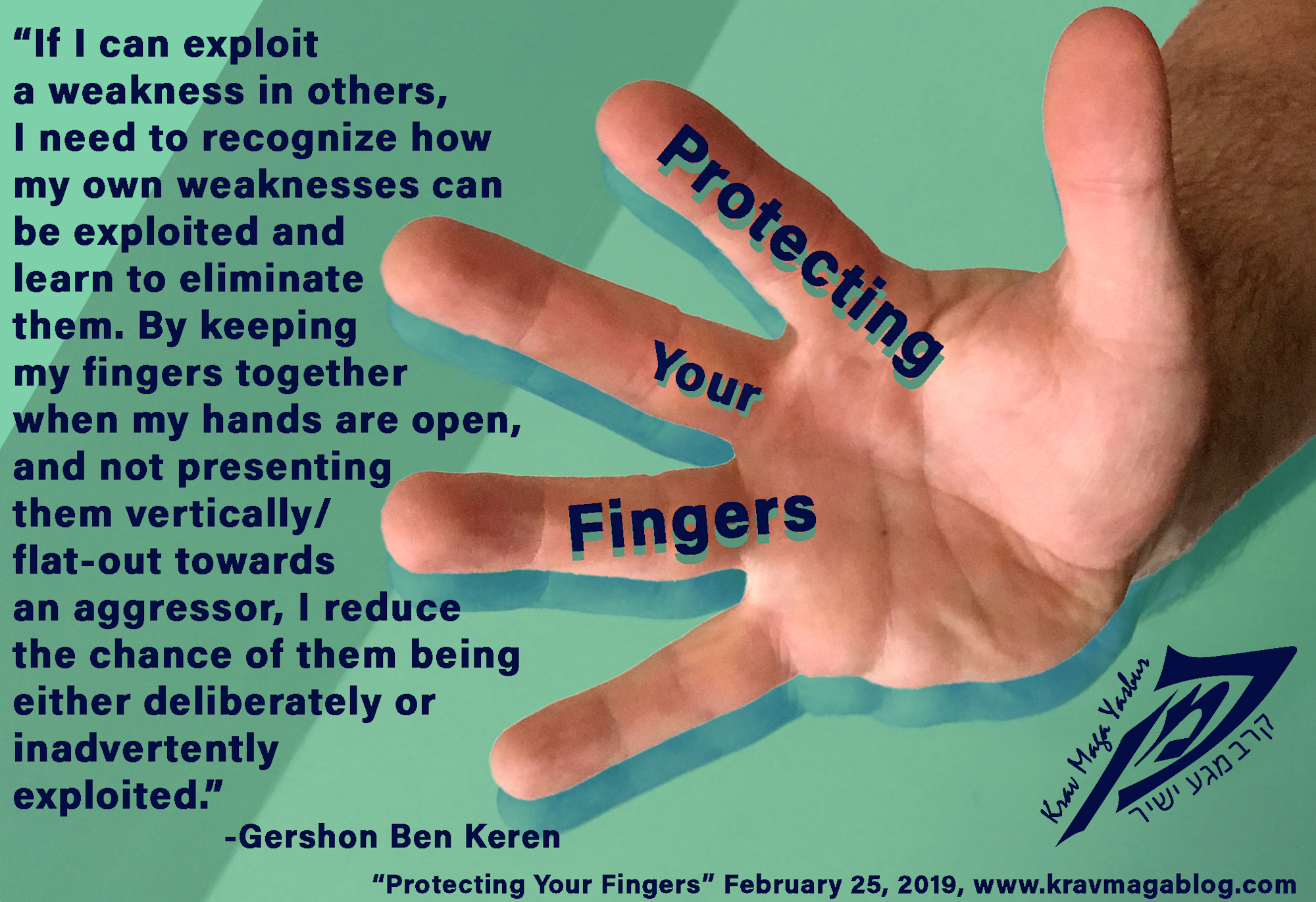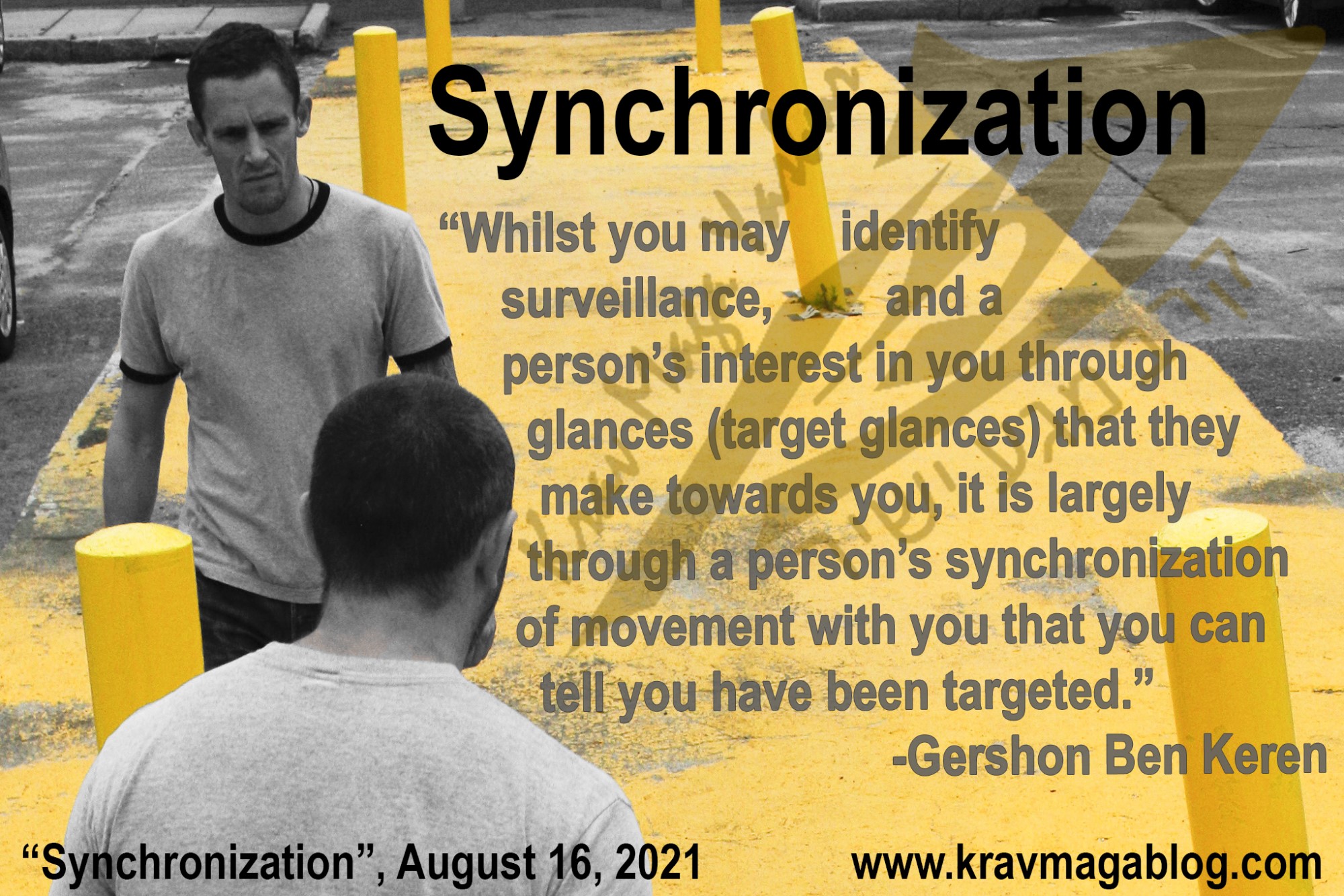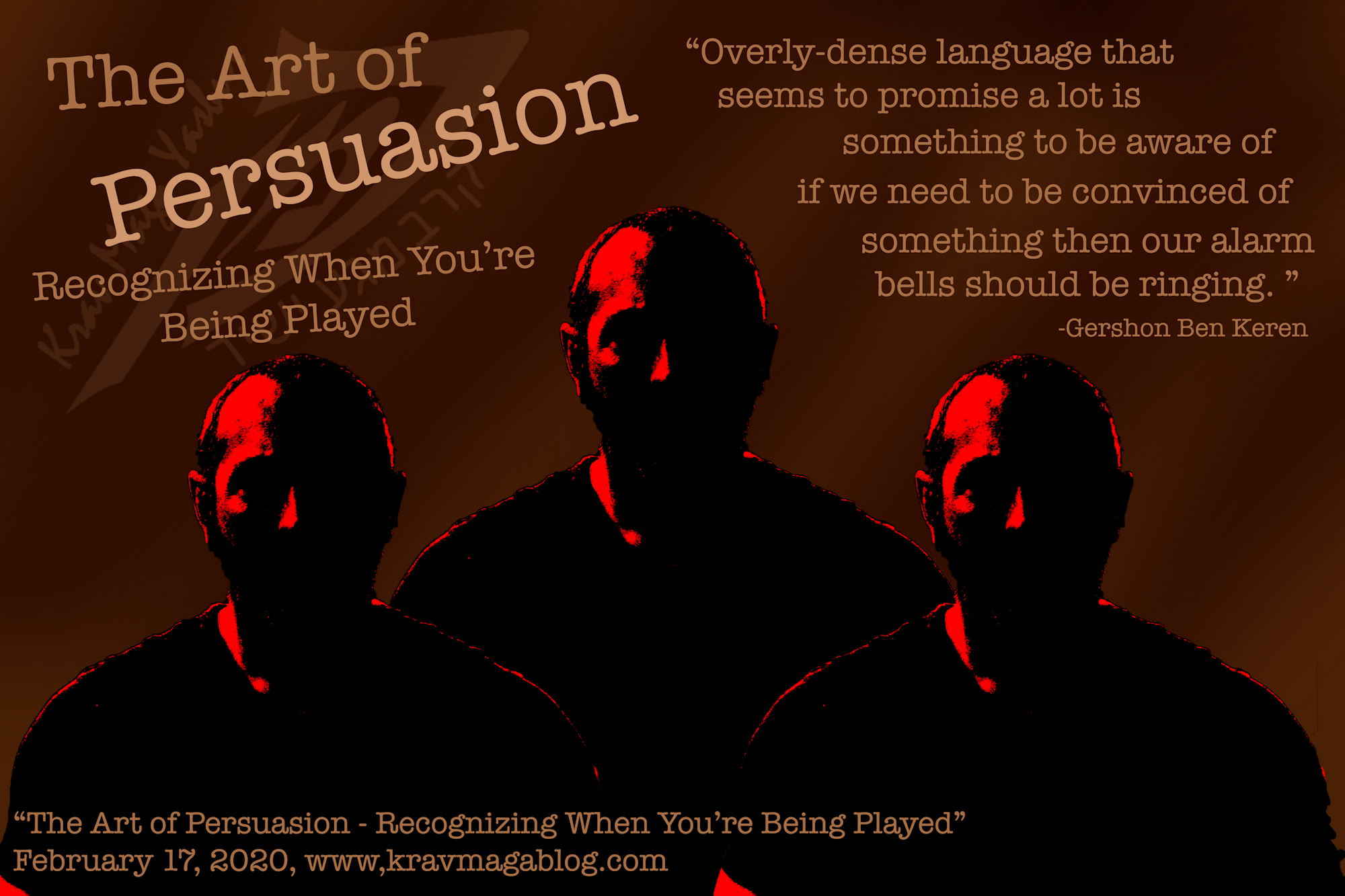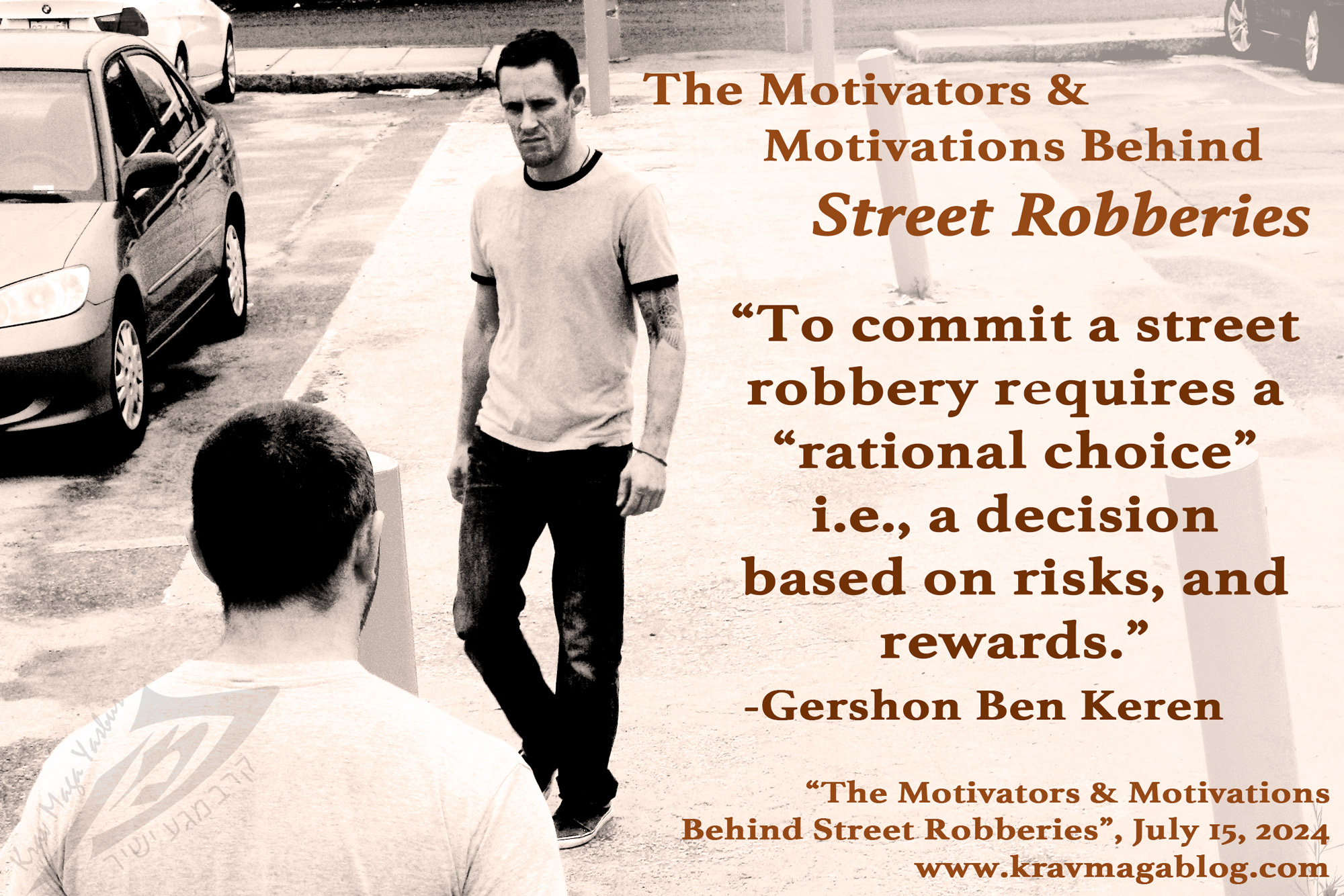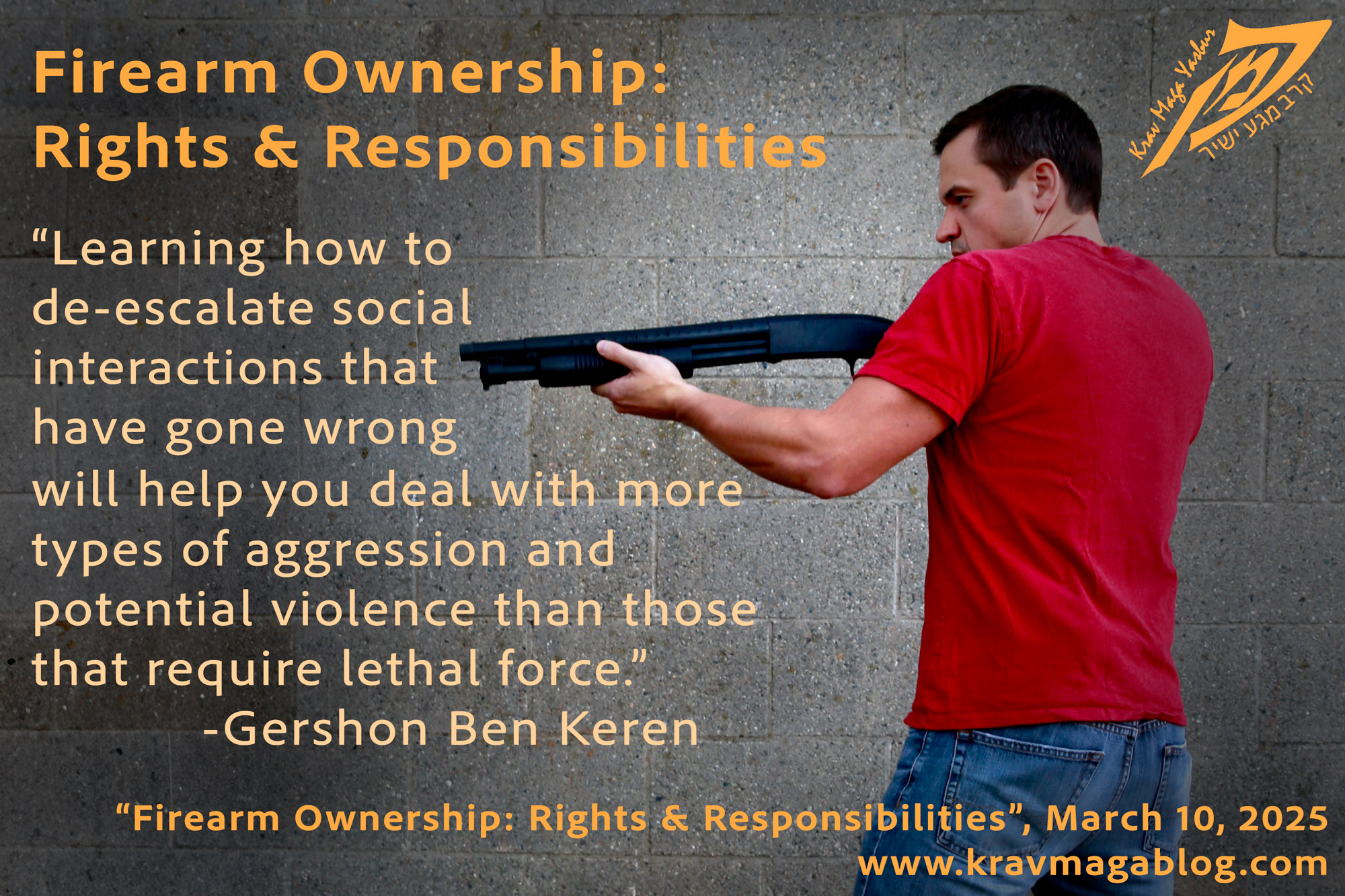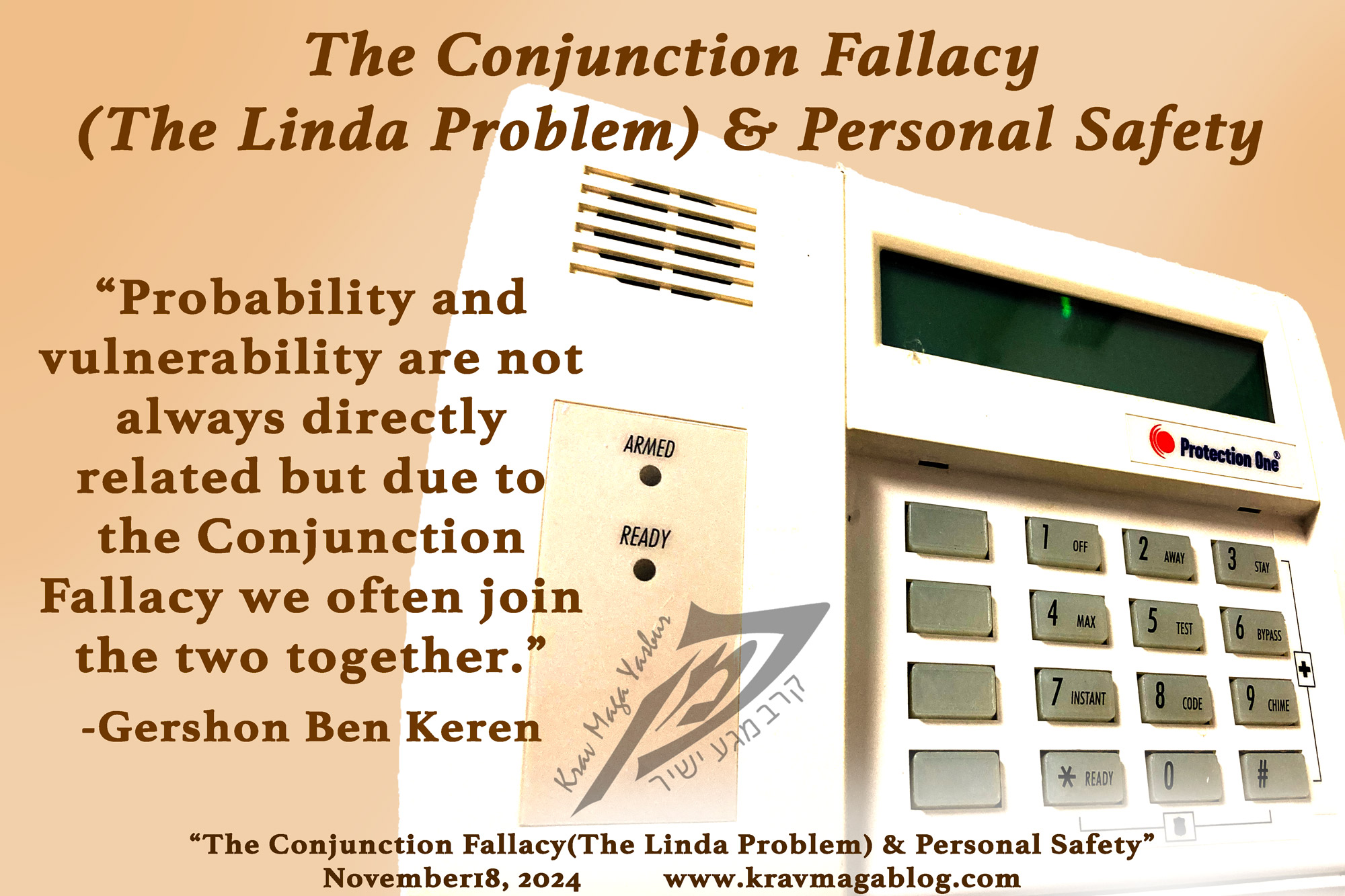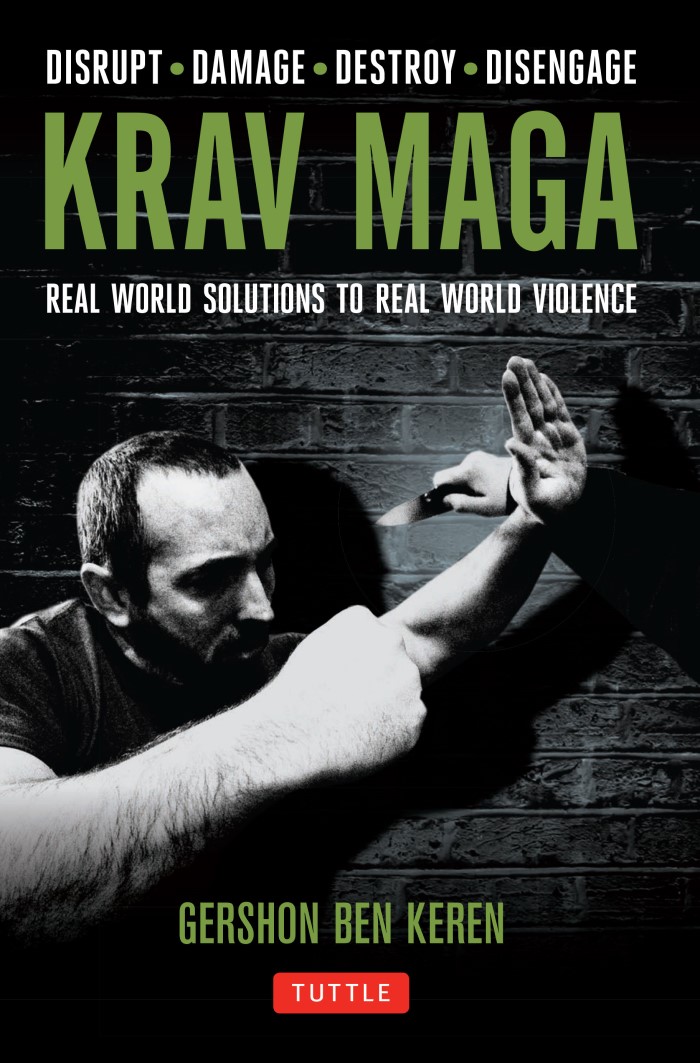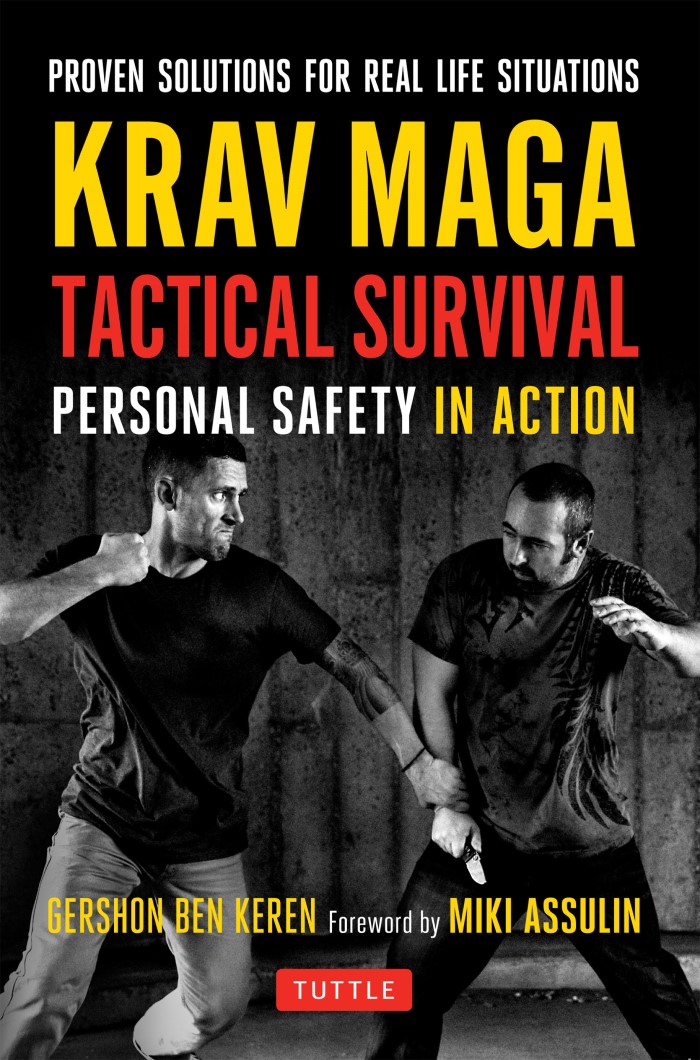The Motivators & Motivations Behind Street Robberies, is an article written by Gershon Ben Keren, a 5th Degree Black Belt in Krav Maga, who teaches Krav Maga in Boston, MA. He has also authored three Amazon best-Selling Books on Krav Maga.
Whilst street robberies or muggings may seem simple “transactional” affairs, where one individual demands assets e.g., possessions such as a mobile phone and/or cash, from another by force or the threat of force, they are actually much more complex events. As with any act of violence, street robberies consist of three core components:
- Location
- Relationship
- Motive
That is, the space and time where the offense takes place, the relationship that the offender has with their target, and the motivating factors that both drive them to commit such offenses overall, and in a specific instance e.g., someone who regularly engages in street robberies, and is motivated to do so, doesn’t spend all their time committing robberies, and so there will be “triggers” that cause them to do so. These may be the need to obtain money to pay rent, an opportunistic interaction with a suitable target, the need to get their next “fix” because they are coming down from a substance-induced high etc. Whilst location and relationship may seem to be independent “variables” they are often linked, especially in cases of repeat victimization e.g., a person who was mugged on a certain street outside their workplace as they were leaving work at a particular time, may find themselves in that same location (at the same time of day), with their “original” mugger i.e., someone they have a prior relationship with, because that is the space and time in which this offender operates. As with any social interaction, street robberies are more complex events than their seemingly transactional nature may indicate. In this article I want to look at some of the less-obvious components of muggings to get a better understanding of this particular type of crime.
Whilst muggers may also engage in shoplifting, burglary and car theft etc., not all burglars and shoplifters etc. engage in street robberies i.e., it takes a certain type of person to engage in these offenses. I’m not suggesting that some people are “born” to commit such crimes, and that there is an underlying genetic or biological reason why some people are offenders, and why some individuals commit certain offenses rather than others, but rather for someone to engage in a street robbery they need a certain set of social “skills”; they need to have a degree of confidence, an ability to communicate, to socially interact with others, and a willingness to use force/violence etc. Street robbery, unlike pickpocketing or burglary, is not an offense that is committed in secret. Also, the “narrative” of offenders who engage in this crime may be very different to the ones we create for them. We may portray muggers as being psychopathic criminals who without any emotion, believe they are entitled to our assets, because they are lazy and selfish individuals who belong to a “criminal class”, or we might see them as disadvantaged individuals who have had few opportunities in life and so are “forced” to engage in crime because this is the only opportunity available for them to make an income etc., or we may believe that individuals engage in street robberies for a number of different reasons, and that there is no one, singular motivation behind them. However, these are our opinions and speculations, concerning the motivations of other people, and may be wholly inaccurate. How we see those who commit street robberies may be entirely and completely different to how they see themselves. Understanding how such offenders see their offending is extremely important if we ever have to manage an interaction with them.
Whilst an offender may understand and recognize that society via the legal system criminalizes their actions and classes them as offenses, this doesn't mean that they see themselves as “criminals” or “offenders” in the same way that society does. To maintain our identities, we need to justify the things that we do. Human beings can occasionally admit that they were wrong to say or do something, but they can’t live in a state where we are perpetually at odds with themselves; at some point they have to make sense of and justify the things that they do, in order to preserve a sense of self and identity. Those who engage in street robberies are no different. Qualitative research has shown that many profess to having certain rules about who they target e.g., no young people, no women, and no old people etc., however some of these individual interviewed have admitted that they’ve occasionally broken these “rules” when a situation necessitated it, such as when they needed drugs etc. The language that offenders use to describe their offenses also shows how they see and justify their “crimes”. In the UK those who engage in street robberies refer to what they do as “taxing the streets” i.e., they identify as a subculture/group, which has a jurisdiction over the “streets”, and a right to “tax” those who come into their jurisdiction e.g., a business person who moves about a city’s business district is in their own environment, however once they enter the “streets” – a patch a mugger(s) operates in – they have crossed into their world, and so should “expect” to be “taxed”. Obviously, the definition of what constitutes the “streets”, is a fluid one, but the idea that in certain locations and situations, street robbery constitutes a “tax” is an attempt to legitimize and justify the offense.
It is also important to consider how those who engage in such offenses view those they target, in order to justify their actions. They may see themselves more as “Robin Hood” type characters who through their system of “taxation” are redistributing wealth in a more equitable manner rather than depriving someone of assets that they are justified to possess. It is unlikely that those who engage in street robberies are considering the impact of their offenses, from any tangible (the consequences of taking and depriving a person of their assets), emotional/psychological (traumatic) perspectives etc. The person targeted is a vehicle/means by which assets can be acquired rather than an individual/person who may suffer negative consequences from the interaction. Again, if such things were seriously considered, with the conclusion being that another person is suffering due to an offender’s actions, it would be hard for a person to justify their offenses. Therefore an “alternative” narrative is created, whereby the target is capable of absorbing all of the “costs” of the offense, because they can “afford” the loss of assets, the interaction is short and minimal, if they sustained injuries by resisting that was their fault/responsibility for not complying etc.
To commit a street robbery requires a “rational choice” i.e., a decision based on risks, and rewards. That choice may be “bounded” in that the offender doesn’t have all the information necessary to make a completely informed choice, including how those individuals victimized will be able to tangibly, emotionally, and psychologically cope with and manage both the incident itself, and the longer-term consequences of it etc. However, an offender must have the means to create a narrative where their actions are justified, and not ones that they are embarrassed or ashamed about.
0 COMMENTS